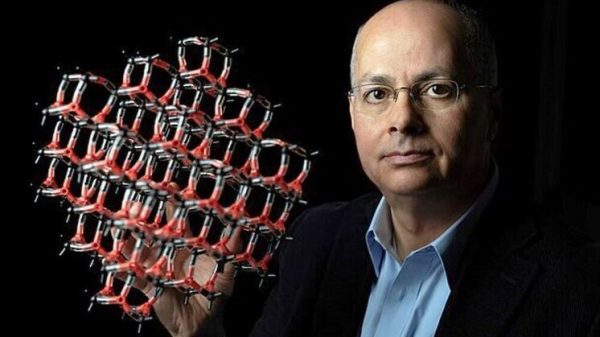 The name Benoit Jacquot (left) has not been mentioned before Judith Godrèche
The name Benoit Jacquot (left) has not been mentioned before Judith Godrèche
“No, no, NO. No Benoit Jacquot,” Judith Godrèche wrote on Instagram on Saturday, criticizing the French director. Then, describing herself in the third person, she wrote: “She didn't care.”
So the 51-year-old actress has reignited a culture war in France over sexual impropriety that has divided the country. generational lines.
She was responding to an old interview with Jacquot, in which he talked about his six-year affair with Godrèche, which began when he was 40 and she was 15.
“It was a violation … with legal point of view,” he said in a documentary filmed in 2011 that has resurfaced online. “Theoretically, I had no right. But… I didn’t care — and I would say she was very excited about it.”
Having previously mentioned relationships from the late eighties and nineties, but without naming Jaco, Godrèche decided to speak out to help others not idealize such situations.
The comments came shortly after an interview she gave to Elle magazine, in in which she said that «the cinematic power of a teenager is limitless, but you can make sublime films without sleeping with your underage actress.» For me it becomes a perversion.”
The scandal has added another dimension to the debate, which in recent months has centered around Gérard Depardieu's curvaceous figure. Given Depardieu's enormous presence in French culture, it is not surprising that the actor has become a lightning rod for national anxiety around #metoo.
 Photo: AP Photo/Thibault Camus
Photo: AP Photo/Thibault Camus
Allegations of sexual assault and rape have swirled around the 75-year-old star for years, but have been largely dismissed as the excesses of a man whose Rabelaisian appetites and sensuality were also the source of so much art.
A split has emerged between young people, brought up on social justice and social media, who consider Depardieu unscrupulous, and the older generation, who do not understand what all the fuss is about.
As Depardieu wrote in an October article in the Le Figaro newspaper, defending himself: “All my life I have been provocative, excessive, sometimes offensive. I often did what no one else dared to do: test limits, overturn beliefs and habits, and on set, between takes, in between tensions, I laughed and made others laugh.”
In the end, however, it seems that his homeland — although he is currently a tax exile — has stopped seeing the funny side. The Le Figaro editorial was a response to allegations of sexual harassment against Depardieu by more than a dozen women. Le Monde newspaper published a six-part editorial, «Cas Depardieu», which revealed the actor's unhealthy past. The most serious thing is that in 2020 he was charged with raping the actor Charlotte Arnoux, the daughter of one of his friends.
A month later, a documentary was shown on French television that turned the cog even further. “Depardieu: Fall of the Cannibal” includes never-before-seen footage from a 2018 trip to North Korea in which the actor sexually harasses his translator, makes lewd comments about women and even a sexual comment to a child. Within weeks, his films, which included such classics as Cyrano de Bergerac and Green Card, were removed from Swiss television and French networks canceled future projects. The Minister of Culture discussed the issue of abolishing the Legion of Honor. His wax effigy was even removed from the Grevin Museum, presumably to make room for two or three others.
“The layers of sexism and racism in this documentary say a lot about the patriarchal and colonial view of France,” says Alice Pfeiffer, a writer and author of Je Ne Suis Pas un Parisenne about sexism in French views of women.
“Social media has set new standards and discussions in which ingrained French prejudices have suddenly become apparent. In France, terms like “crime of passion” are still used in court, and Picasso is still considered a genius. The mythology of the passionate artist whose sexual crimes are simply collateral damage or part of the character is still strong.»
As if to prove his point, Yannis Ezziadi, a right-wing writer, has drafted a letter signed by 56 prominent people, including Charlotte Rampling, condemning the attacks on Depardieu. “Gerard Depardieu is probably the greatest of all actors,” it said. “When you attack Gerard Depardieu in this way, you are attacking art. With his acting talent, Gérard Depardieu contributes to the artistic brilliance of our country.”
 Yiannis Ezziadi Photo: Guillaume Bonnet/AFP
Yiannis Ezziadi Photo: Guillaume Bonnet/AFP
Even President Macron expressed his opinion, saying that Depardieu was a victim «persecution».
In response, hundreds of artists, many of them young, signed a counter letter blaming Rampling & With “spitting” on victims of sexual violence.
“I’m not surprised to see Macron defending Depardieu,” says Pfeiffer. “Because culture and sexism are so closely related to each other and are central to the French culture that he promotes. The older generations think the revival is out of control. They do not agree with the accusations. Their chant is “on peut plus rien dire” — we can’t say anything more.”
For Anne-Elisabeth Moutet, a writer and journalist, Macron's comments were a distraction from more pressing political issues. “It was a reckless move by Macron,” she says. “This was cynically orchestrated to make the immigration law fiasco go away.”
Whatever the truth about the president's intervention, this debate is the latest skirmish in a long war. The #metoo moment has never been natural for France. When allegations of sexual misconduct against Hollywood producer Harvey Weinstein first emerged in 2017, American women — celebrities and civilians — rushed to share their own experiences in the press and on social media. Great Britain soon followed, along with the rest of the Anglosphere.
The French have always had an easier time at the tiller when it comes to love and passion. This is the land of the cinq-a-sept, the early evening window when you see your mistress, and where politicians' ratings rise, not fall, with the revelation of extramarital affairs.
Consequently, what was presented to the Anglo-Saxons as an urgent corrective measure became more of a matter of debate in France. Sandra Muller, a French journalist, entered the fray under the slogan #balancetonporc, which literally means “expose your pig.” But in January 2018, actress Catherine Deneuve led a group of 100 famous French women to sign a letter accusing the campaigners of intolerance and censorship. “[And] rape is a crime,” the letter said, “but attempting to seduce someone, even forcefully or clumsily, is not, nor is the behavior of a gentleman a macho attack.”
 French actress Catherine Deneuve (right) with her partner in the film «Bonn Pomme» Gerard Depardieu Photo: YOHAN BONNET/AFP/Getty Images
French actress Catherine Deneuve (right) with her partner in the film «Bonn Pomme» Gerard Depardieu Photo: YOHAN BONNET/AFP/Getty Images
While this may speak to national stereotypes of promiscuity and outdated gender roles, evidence suggests that this view is increasingly in the minority in France. In 2020, publisher Vanessa Springora published the best-selling book Consent, in which she detailed her sexual abuse by famed writer Gabriel Matznev, which began when he was 49 and she was 14. The fallout led directly to a 2021 law change that classifies sex with a child under 15 years of age as rape. Previously, rape was only considered if there was evidence of coercion.
In many other respects, France is more progressive than the US and UK. Research shows that the country has the highest percentage of women in the workforce in the world. There is free universal childcare for children from age three. However, sexual and domestic violence remain persistent problems. Official figures show 94,000 rapes or attempted rapes are reported each year, compared with less than 70,000 in the UK.
Justifying his affair with Godreche, Jacquot said that he was inspired by the world in which he lived. “The point is that cinema… was a kind of cover… for these kinds of practices,” he said. “And at the same time, in the film world, you have a certain respect or a certain admiration [because] others would want to do the same thing.”
The uproar over Godreche's comments shows that even if traces of these sympathies remain, it will not be for long. And if so, then those who adhere to them will keep their views to themselves. Even in France.






















































Свежие комментарии